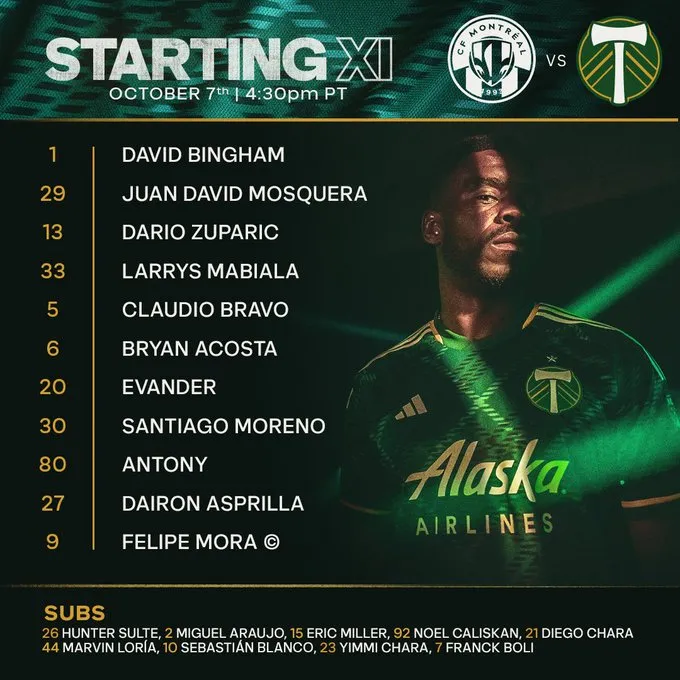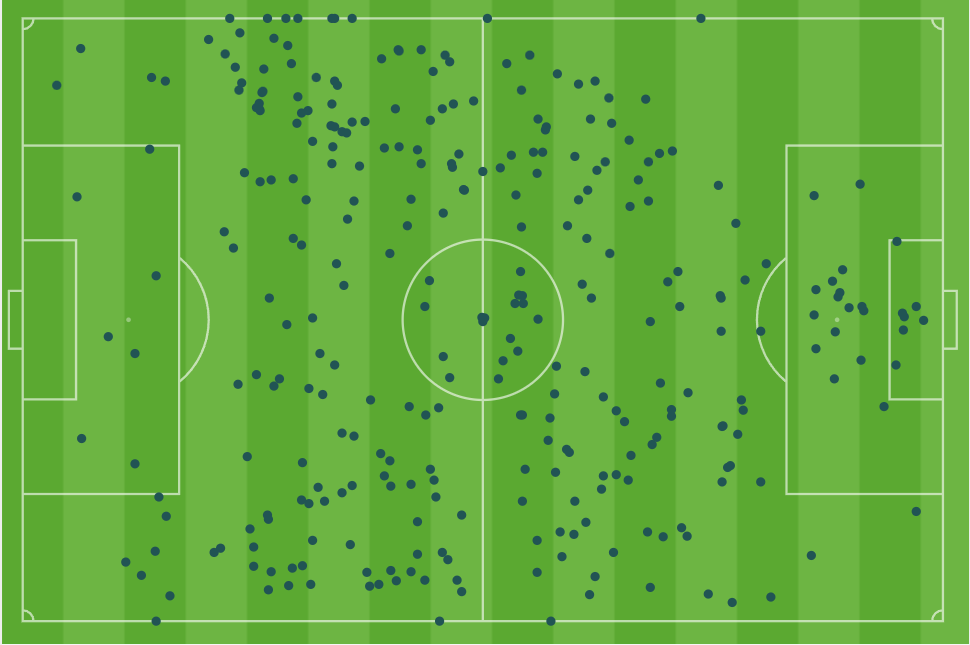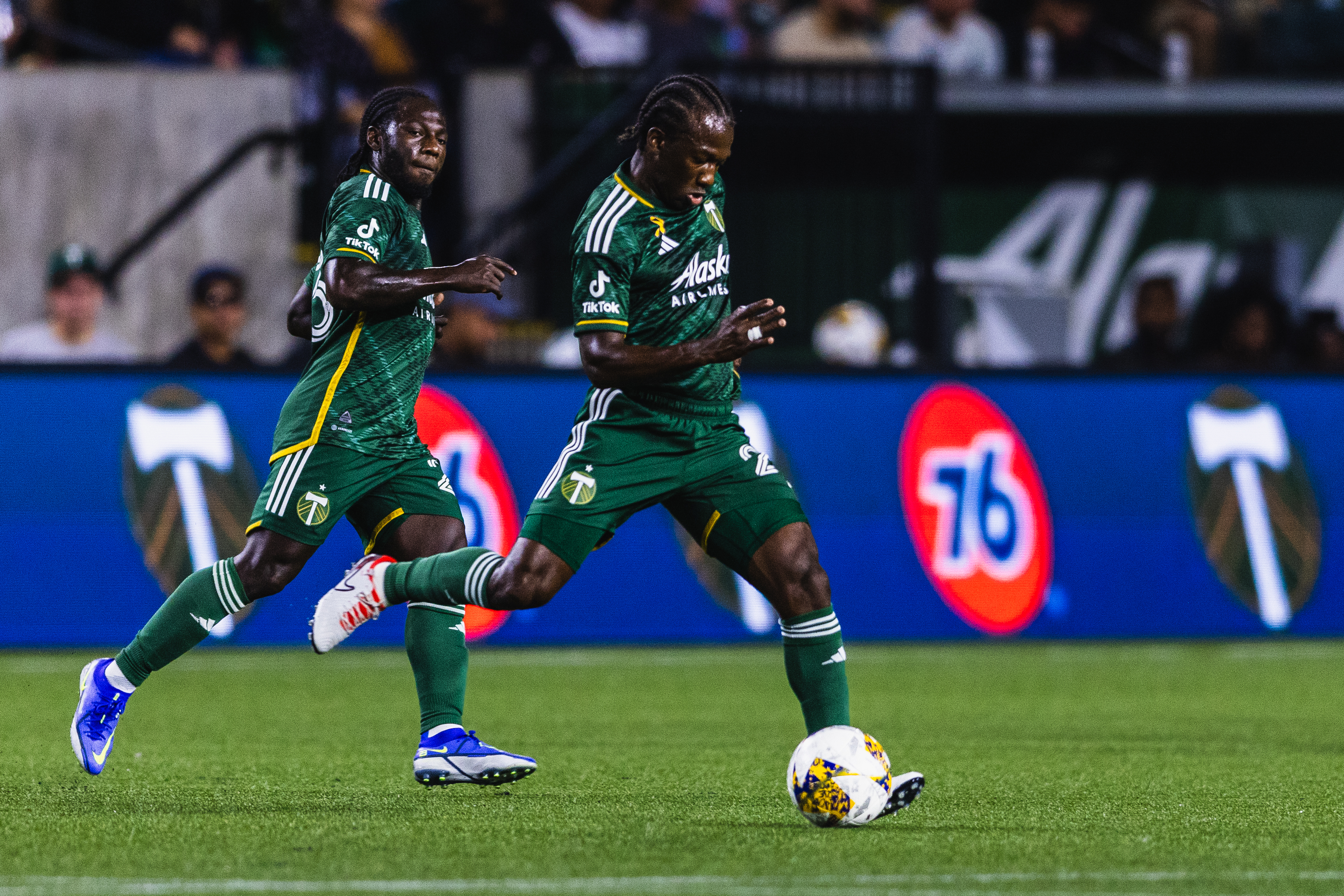The Portland Timbers took to the road to play CF Montréal on Saturday. Portland had their playoff destiny in their hands, but they let it slip away by losing 1-4 against the Canadian club.
Well, that was disappointing.
It is true that Montréal came to this match with some momentum after drawing their previous game against Houston Dynamo in the last minute, but still. The Timbers were facing a team that hadn’t been able to get a win since Aug. 26. And Portland brought momentum as well after that battle against LA Galaxy. So, there was no excuse for their poor performance other than the fact that soccer is a game where you win and lose.
Key absences
The fact that Zac McGraw wasn’t on the Timbers’ backline due to injury was already bad news. The team suffers a lot when he’s not on the field, and this match was the perfect example of it.
When we look at the stats, McGraw always excels in the clearances department. Without him, no one in the backline had more than three clearances. And that’s just one stat.
Cristhian Paredes was also unavailable due to injury, and that left Portland’s midfield very vulnerable. Diego Chará was available after his appendectomy but didn’t start.

D. Chará came back in the second half, but by then, the Timbers were already trailing 0-2, and Montréal was highly motivated. Still, speaking of the midfield, if there’s someone you can say had a decent match, that was Santiago Moreno. The Colombian usually has good games, and this was no exception for him. Too bad one player can rarely make up for poor performances from everyone else.
Fast counterattacks
The hosts put the visitors in a jam with long balls and fast counterattacks. Exhibition A was their first goal that showed how they only needed to make five passes to score. Ibrahim Sunusi sneaked on the backs of Portland’s center backs, and nobody tracked him. So, he was unmarked on the far post to push that ball in the back of the net.
A deflection put Montréal 2-0 minutes later, when Kwadwo Opoku shot. The ball got deflected on Dario Župarić’s leg, which left David Bingham with no chance to stop the shot.
The score was a reflection of what was happening on the pitch: you could see the home team was feeling it and was on a mission. After beating Evander in the midfield, Opoku rushed to Portland’s box. A quick succession of passes put the ball in the box, but Juan David Mosquera cleared it. Then Claudio Bravo lost the ball against Sunusi, who, in turn, assisted Opoku.
After halftime, Antony and Evander were subbed off, and Franck Boli and D. Chará came in. It was a logical change after both Brazilians didn’t do much in the first half.
Antony and Evander weren’t alone; the Timbers as a team couldn’t produce much in the attack in the first half. Other than a chance in the 4th minute, they barely stepped a foot in Montréal’s box.

We had to wait almost one hour to see Portland being dangerous in the opponent’s box again. By that time, Sebastián Blanco had Bryan Acosta and Eric Miller did the same with Bravo.
Portland’s lukewarm defense
Despite what I said in the previous paragraph, Montréal was going to slap the visitors again with another fast counterattack. This time, it only took four passes for Mathieu Choinière to score a golazo.
Bravo had a quiet match, true, and maybe interim head coach Miles Joseph was expecting Miller to do a better job. Neither Bravo nor Larrys Mabiala challenged Choinière for the ball, and nobody stepped in front of him to stop him from shooting. Bingham tried, but he was positioned one or two steps too far for to be able to reach the shot.
Not even Bingham
After Joseph took over as interim head coach and the organization had some problems with Aljaž Ivačič, Bingham cemented his position as the team’s No. 1 goalkeeper. He has been doing well enough, but not even he was spared from Portland’s collective lackluster performance.
And that’s how Montréal scored their fourth goal. Bingham was able to stop the initial shot by Ariel Lassiter, but he didn’t catch it, which gave Mason Toye the chance to shoot on a pretty much open net. Props to Bingham, who got up quickly to get to the second shot—even if he wasn’t fast enough.
But let’s not put everything on Bingham. At the end of the day, it was Toye who started the play, changing the point of attack to Lassiter, but none of the Timbers tracked him. That left Toye completely unmarked on the far post to finish what Portland couldn’t stop on time.
All that is without mentioning Bingham’s giveaway that could’ve ended up in Montréal’s fifth goal in the dying minutes of the match.
Consolation goal
With 15 minutes to play and 0-4 down there wasn’t much for the Timbers to do. Only a miracle would make the visitors revert the score. That miracle didn’t happen, it was interesting to see how they were going to finish the game.
Portland’s goal was truly controversial, with Yimmi Chará’s handball first and Boli’s offside second, but the referee didn’t disallow it in the end. How does VAR work again?
After the goal, Boli looked more dangerous. He even had a great chance, but it went wide. Montréal wasn’t reduced to defensive work, but they tried to make the gap in the score wider. Fortunately for the Timbers’ well-being, the Canadian side didn’t succeed. But the damage was already done.
Playoff picture
With this loss, the Timbers have yet to clinch a playoff spot. They have to play the always-dangerous Houston Dynamo at Providence Park on Saturday to do so. If that doesn’t work out, they’ll need a loss or draw from both Sporting KC and Minnesota United. We hope Portland doesn’t have to rely on other teams’ results and grab the bull by its horns.

